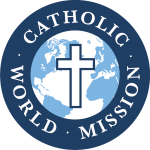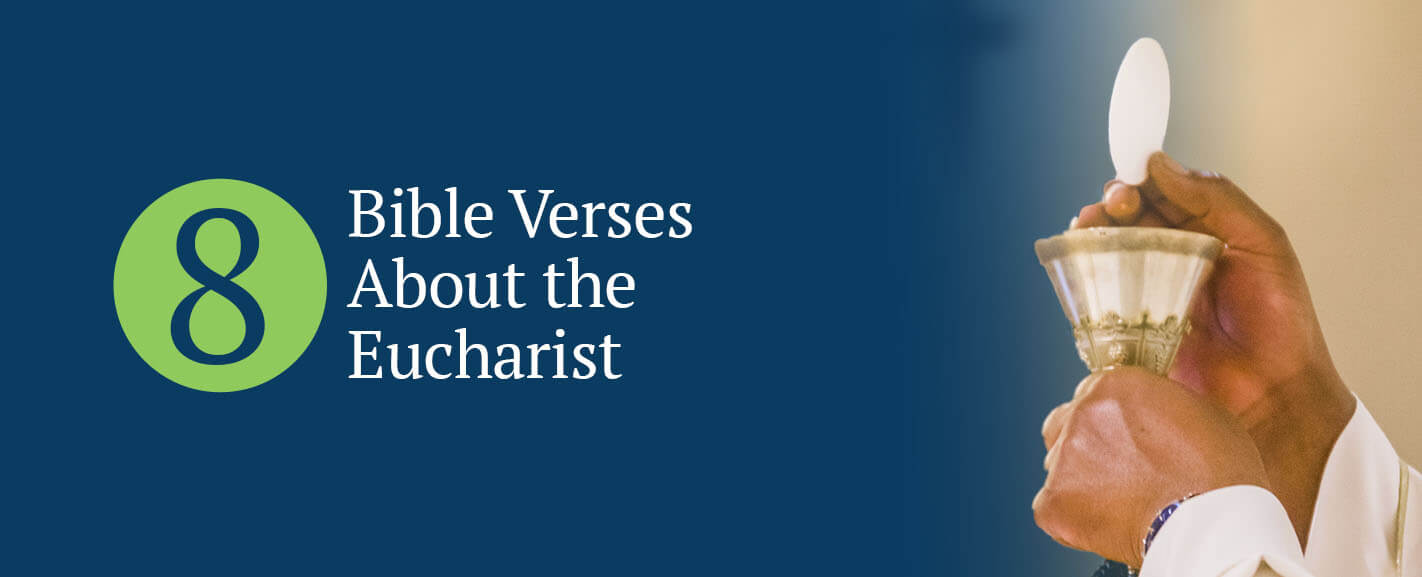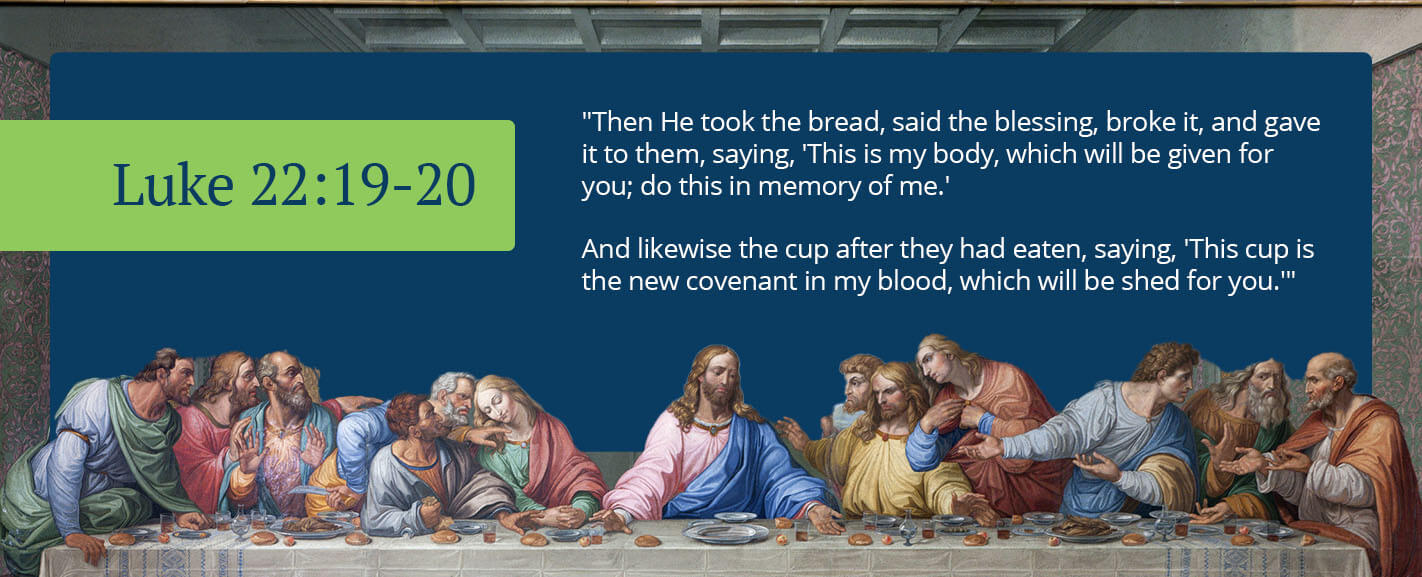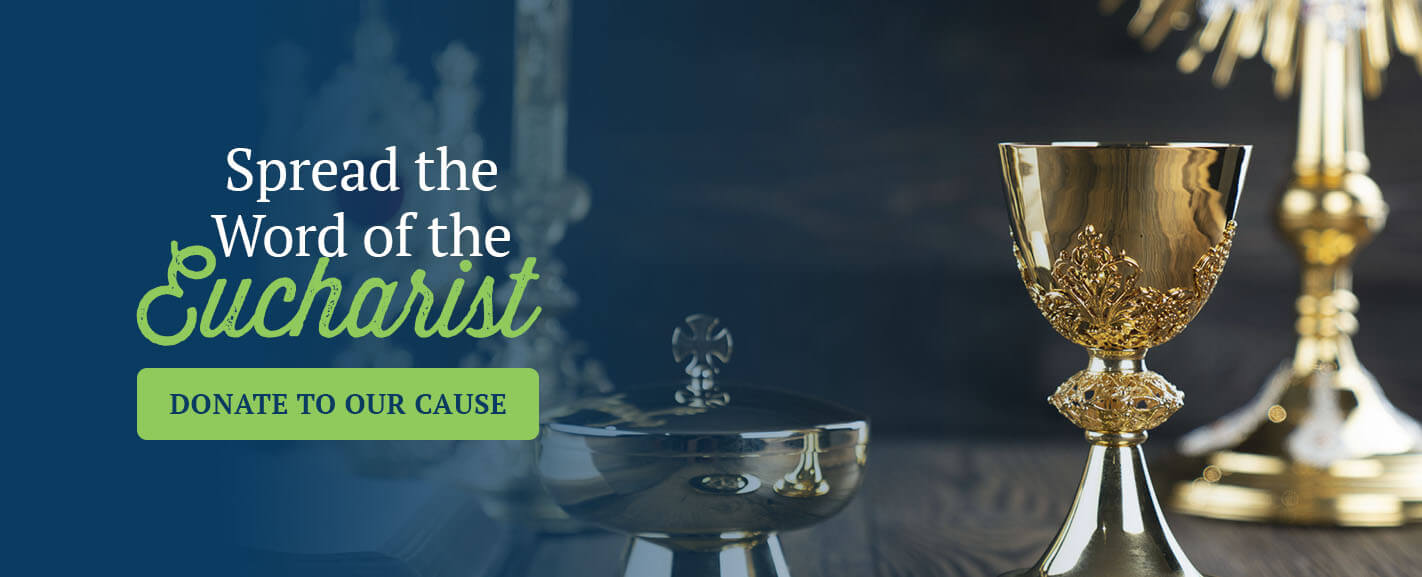The Eucharist is a central part of the Catholic faith. Whether you are engaging in Eucharistic Adoration or receiving the Eucharist during communion, you are participating in the presence of Jesus. You’re also following His teachings and giving Him the honor and praise He deserves.
But how did the Eucharist come to be? Are there Eucharist scriptures that lay the foundation for the Eucharist today? Understanding the origins of the Eucharist and reading some Eucharistic scriptures is a wonderful way to help you feel encouraged and uplifted. Discover what the Bible says about the Eucharist in the verses below.
The Origins of the Eucharist
The Eucharist finds its earliest origins in the Bible. The Old Testament contains many hints and symbols that point to the Eucharist, as Jesus would establish it in the New Testament. Some of these symbols include bread, wine, sacrificial lambs and blood. And although the Old Testament does not specifically mention the Eucharist, Jesus would fulfill these hints and show that they pointed ahead to His sacrifice on the cross.
Jesus’ body was broken, and His blood was shed for us. Before He died, He broke bread and shared wine with His disciples, saying that they were His body and blood. John the Baptist even calls Jesus the Lamb of God in John 1:29, literally connecting Jesus to the sacrificial lamb. It’s because of Jesus — the fulfillment of Old Testament prophecy and imagery — that we can take part in the Eucharist today.
After the days of the New Testament, the Eucharist would develop throughout history into what it is today. And although today’s Eucharistic activities may have a slightly different appearance than the early Church, one thing remains the same — it’s all because of the sacrifice of Jesus that we can share in His presence and have a relationship with Him today.
Bible Verses About the Eucharist
Here are some Eucharist Bible verses to encourage you in your faith today.
Mark 14:22-24
“While they were eating, He took bread, said the blessing, broke it, and gave it to them, and said, ‘Take it; this is my body.’
Then He took a cup, gave thanks, and gave it to them, and they all drank from it.
He said to them, ‘This is my blood of the covenant, which will be shed for many.’” Mark 14:22-24.
This may be the most famous Eucharist quote of all, as it is the moment when Jesus established the ordinance of communion. Here, Jesus explains how the bread and the wine connect to His body and blood.
Luke 22:19-20
“Then He took the bread, said the blessing, broke it, and gave it to them, saying, ‘This is my body, which will be given for you; do this in memory of me.’
And likewise the cup after they had eaten, saying, ‘This cup is the new covenant in my blood, which will be shed for you.’” Luke 22:19-20.
Luke recounts the same moment as the one in the previous passage in Mark — Jesus’ establishing of communion. Yet it’s valuable to see the slight differences between the two accounts. For instance, Luke mentions that Jesus established the new covenant, one that grants peace between God and humankind for those who believe in His death and resurrection.
John 6:35
“Jesus said to them, ‘I am the bread of life; whoever comes to me will never hunger, and whoever believes in me will never thirst.’” John 6:35.
In this Eucharist quote from the Bible, Jesus explains that He is the bread of life. While he is talking in symbolism regarding spiritual hunger and thirst, he is also making a direct connection between his body and the bread of the Eucharist, which was literally broken for those who believe. It’s only the broken body of Jesus that can provide true and lasting satisfaction.
John 6:51-58
“‘I am the living bread that came down from heaven; whoever eats this bread will live forever; and the bread that I will give is my flesh for the life of the world.’
The Jews quarreled among themselves, saying, ‘How can this man give us [His] flesh to eat?’
Jesus said to them, ‘Amen, amen, I say to you, unless you eat the flesh of the Son of Man and drink His blood, you do not have life within you.
Whoever eats my flesh and drinks my blood has eternal life, and I will raise him on the last day.
For my flesh is true food, and my blood is true drink.
Whoever eats my flesh and drinks my blood remains in me and I in him.
Just as the living Father sent me and I have life because of the Father, so also the one who feeds on me will have life because of me.
This is the bread that came down from heaven. Unlike your ancestors who ate and still died, whoever eats this bread will live forever.’” John 6:51-58.
Here, Jesus takes the symbolism from earlier in the chapter and gets much more specific. He directly calls His flesh food and His blood drink, stating that those who eat and drink of it will have eternal life, which is the gift of salvation offered to humankind. While this is a central doctrine of the Catholic faith, those who have not heard the good news can find these words perplexing, as the Jews found it at the time they heard it.
Acts 2:46-47
“Every day they devoted themselves to meeting together in the temple area and to breaking bread in their homes. They ate their meals with exultation and sincerity of heart,
praising God and enjoying favor with all the people. And every day the Lord added to their number those who were being saved.” Acts 2:46-47.
This verse gives a peek into some of the earliest days of the Church. The believers of the time constantly devoted themselves to the breaking of bread together — something the disciples learned from Jesus and passed on to the early Church. Their breaking of bread together may be one of the earliest forms of the Eucharist.
1 Corinthians 10:16-17
“The cup of blessing that we bless, is it not a participation in the blood of Christ? The bread that we break, is it not a participation in the body of Christ?
Because the loaf of bread is one, we, though many, are one body, for we all partake of the one loaf.” 1 Corinthians 10:16-17.
The Apostle Paul gave instructions to the Church at Corinth on how they were to fellowship together and take communion. Paul gives some doctrine that states that our participation with the cup and the bread is actually participation with the blood and body of Christ. Paul also reminds us that the Church, although full of diverse people, is one body — because we all partake of the one loaf, Jesus Christ.
1 Corinthians 11:28-29
“A person should examine himself, and so eat the bread and drink the cup.
For anyone who eats and drinks without discerning the body, eats and drinks judgment on himself.” 1 Corinthians 11:28-29.
A little later in his letter to the Corinthians, Paul gives more insight into how the Church should take communion and participate in the Eucharist. Here, Paul says that believers should examine themselves before taking communion to avoid receiving judgment because of sin they have yet to ask forgiveness for.
John 15:5
“‘I am the vine, you are the branches. Whoever remains in me and I in him will bear much fruit, because without me you can do nothing.’” John 15:5.
In this passage, Jesus connects himself symbolically with the vine. Vines bear grapes, which can then become wine. Thus, Jesus is making a unique connection to the blood which He shed for us. Without that blood, we can do nothing.
Spread the Word of the Eucharist
At Catholic World Mission, one of our main pillars of focus is evangelization. We strive to help people around the world come to know Jesus and start living their lives in obedience to His teachings. Part of this is helping churches in need receive monstrances so that their communities can participate in Eucharistic Adoration. But we can only do this through the generosity of our donors. You can help us with this goal by donating monstrances around the world today!




